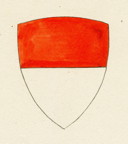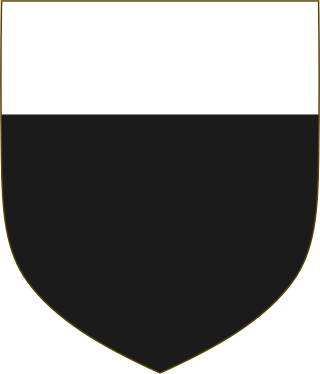
Dante Alighieri, most likely baptized Durante di Alighiero degli Alighieri and widely known and often referred to in English mononymously as Dante was an Italian poet, writer, and philosopher. His Divine Comedy, originally called Comedìa and later christened Divina by Giovanni Boccaccio, is widely considered one of the most important poems of the Middle Ages and the greatest literary work in the Italian language.

Francis Petrarch, born Francesco di Petracco, was a scholar from Arezzo and poet of the early Italian Renaissance and one of the earliest humanists.

Antonio Francesco Gramsci was an Italian Marxist philosopher, linguist, journalist, writer, and politician. He wrote on philosophy, political theory, sociology, history, and linguistics. He was a founding member and one-time leader of the Italian Communist Party. A vocal critic of Benito Mussolini and fascism, he was imprisoned in 1926, where he remained until his death in 1937.

Beatrice "Bice" di Folco Portinari was an Italian woman who has been commonly identified as the principal inspiration for Dante Alighieri's Vita Nuova, and is also identified with the Beatrice who acts as his guide in the last book of his narrative poem the Divine Comedy, Paradiso, and during the conclusion of the preceding Purgatorio. In the Comedy, Beatrice symbolises divine grace and theology.

Purgatorio is the second part of Dante's Divine Comedy, following the Inferno and preceding the Paradiso. The poem was written in the early 14th century. It is an allegory telling of the climb of Dante up the Mount of Purgatory, guided by the Roman poet Virgil – except for the last four cantos, at which point Beatrice takes over as Dante's guide. Allegorically, Purgatorio represents the penitent Christian life. In describing the climb Dante discusses the nature of sin, examples of vice and virtue, as well as moral issues in politics and in the Church. The poem posits the theory that all sins arise from love – either perverted love directed towards others' harm, or deficient love, or the disordered or excessive love of good things.

Giovanni Gentile was an Italian philosopher, fascist politician, and pedagogue.

Brunetto Latini was an Italian philosopher, scholar, notary, politician and statesman. He was a teacher and friend of Dante Alighieri.

Gianni Schicchi is a comic opera in one act by Giacomo Puccini to an Italian libretto by Giovacchino Forzano, composed in 1917–18. The libretto is based on an incident mentioned in Dante's Divine Comedy. The work is the third and final part of Puccini's Il trittico – three one-act operas with contrasting themes, originally written to be presented together. Although it continues to be performed with one or both of the other trittico operas, Gianni Schicchi is now more frequently staged either alone or with short operas by other composers. The aria "O mio babbino caro" is one of Puccini's best known, and one of the most popular arias in opera.
Francesco Angiolieri, known as Cecco Angiolieri was an Italian poet.

Frances Mary Lavinia Rossetti was a British educator who was the daughter, wife, sister and mother of important writers and artists. She was also a model of the paintings of her son Dante. Some photographic portraits of the Rossetti family by Lewis Carroll in the Victorian era are permanently displayed at the National Portrait Gallery, London.

Ugolino Visconti, better known as Nino, was the Giudice of Gallura from 1275 or 1276 to his death. He was a son of Giovanni Visconti and grandson of Ugolino della Gherardesca. He was the first husband of Beatrice d'Este, daughter of Obizzo II d'Este. His symbol was a cock.

Arturo Buzzi-Peccia was an Italian singing instructor and song composer.

Corso Donati was a politician and leader of the Black Guelph faction in 13th- and early 14th- century Florence.
Piccarda Donati was a medieval noblewoman and a religious woman from Florence, Italy. She appears as a character in Dante Alighieri's Divine Comedy.
Forese Donati was an Italian nobleman born in Florence, associated with the Guelphs. He was the son of Simone di Forese and Tessa, and the brother of Corso and Piccarda Donati. He was married to Nella Donati, and had one daughter, Ghita, with her. He was known as a childhood friend of Dante Alighieri. He died in 1296, in Firenze.
Bonagiunta Orbicciani, also called Bonaggiunta and Urbicciani, was an Italian poet of the Tuscan School, which drew on the work of the Sicilian School. His main occupation was as a judge and notary. Fewer than forty of his poems survive.

Gemma Di Manetto Donati, commonly shortened to Gemma Donati, was the wife of Italian poet Dante Alighieri.
Nella Donati was a medieval noblewoman from Florence, Italy. She is primarily known because of Dante Alighieri's treatment of her relationship to her husband, Forese Donati, in the Divine Comedy and in a series of poems Dante exchanged with Forese.
Giovanna da Montefeltro was a thirteenth-century Italian noblewoman and the wife of Bonconte I da Montefeltro. She is referenced by Dante Alighieri in his Divine Comedy for not remembering her late husband in her prayers.

Gaia da Camino was an Italian noblewoman and poet hailing from Treviso, Italy. Her family was descended from the Lombards. She is mentioned briefly in Dante Alighieri's Divine Comedy.













